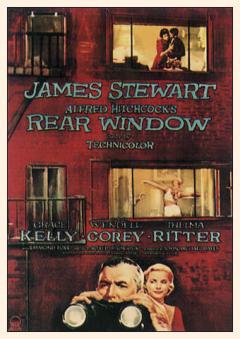Saturday, January 12: Mississippi Mud
PICTURE THIS
by John M. Floyd
Time for a quiz. Take a look at the following list of movies, and see if you can spot what they have in common:
“Rear Window”
“Duel”
 “The Swimmer”
“The Swimmer”
“High Noon”
“The Murders in the Rue Morgue”
“Psycho”
“A Christmas Carol”
“1408”
“All About Eve”
“Brokeback Mountain”
“The Snows of Kilimanjaro”
“It’s a Wonderful Life”
“Stagecoach”
“The Man Who Would Be King”
“The Jazz Singer”
“The Birds”
“Minority Report”
“3:10 to Yuma”
“It Happened One Night”
“The Legend of Sleepy Hollow”
The answer, as I’m sure many of you know, is that they were all adapted from short stories. A few, like Hitchcock’s film “Psycho,” were first changed into novels before the screen adaptations — Robert Bloch’s novel Psycho was originally Bloch’s short story “The Real Bad Friend” (an understatement if ever I heard one) from Mike Shayne Mystery Magazine — but all twenty were based on short stories.
Movies are of course usually adapted from novels. The problem is, a novel is almost always too long to be transferred directly into a screenplay without losing a lot of the original content, unless the movie is a miniseries like “Lonesome Dove” or “Centennial” or “Rich Man, Poor Man.” Don’t get me wrong: I believe the good novels still make the best movies (To Kill a Mockingbird, The Silence of the Lambs, Jaws, Shane, The Godfather) but it takes a talented screenwriter, who may or may not be the author himself, to condense already good material and come up with a quality script. Some films, like “Dances With Wolves” and “Jurassic Park” and “Forrest Gump,” even turn out better, in my opinion, than the novels that spawned them. But not many do.
I think the novella is probably the easiest medium for adaptation. Examples that come to mind are a couple by Stephen King: (1) “Rita Hayworth and Shawshank Redemption,” which became the wonderful Frank Darabont film “The Shawshank Redemption,” and (2) “The Body,” which became Rob Reiner’s “Stand By Me.” The success and popularity and of both those movies is probably due, in at least some degree, to the fact that they were able to follow so closely the text of King’s original stories. (I’ve not yet seen “The Mist,” but I hope it also translated well to the screen — unlike the King novellas “Apt Pupil” and “The Langoliers,” which I thought were disappointing.)
As for short stories, they can also become excellent films. Several in the list above, like “Rear Window” and “It’s a Wonderful Life” and “High Noon,” are outstanding. But the short-story screenwriter is often burdened with having to add quite a bit of plot to the original. In the case of “3:10 to Yuma,” which was both a great short story and a great film (two films, actually, if you include the 2007 remake), the movie versions had to cover a much longer period of time than what Elmore Leonard included in his original piece. Both that short story and Philip Van Doren Stern’s “The Greatest Gift,” which became the film “It’s a Wonderful Life,” were basically only the third acts of their resulting movies. To add that much extra material, those screenwriters had to be accomplished storytellers in their own right. In fact I think “Brokeback Mountain” became a slightly better movie than story only because the script was done by the fine writing team of Larry McMurtry and Diana Ossana.
My point is, if you like reading short stories, who knows — you might someday see one of your favorites on the big screen. And if you’re a short-story writer, I’ll offer you a word of advice: Don’t ever sell “all rights” to your work. If you do, and your little masterpiece is one day adapted into the next Golden Globe winner, you won’t see a penny of the profits. The only thing you’ll be allowed to do is sit in the audience at your hometown theater and munch popcorn and point to the screen and say to your date or your wife or your daughter, “Look — I wrote this.” Think she’ll believe you? I wouldn’t.
In closing, let me mention that there is one more type of movie that works well for short stories, and that’s (surprise, surprise!) the short film, or mini-drama. A couple of years ago I met Edgar Award-winning author Steve Hamilton, who is a fellow IBM guy in his other life, and I was among several folks who were allowed to see a pre-release screening of the short film “The Shovel.” That film, which was adapted from Steve’s mystery short story “A Shovel With My Name On It” in Plots With Guns, starred Oscar winner David Strathairn and went on to receive a number of prestigious awards at film festivals. Exciting stuff.
So, fellow short-fiction lovers, take heart! There’s always the chance that your favorite acorn-sized story will one day grow into a mighty oak.
Stranger things have happened.




















I’m sitting by the phone waiting for the call.
Can you give me any idea of how long it will take?
All I can tell you, JLW, is that two of mine have been under consideration for short films for a couple of years now, and so far there’s still no movie. They once got down to within two weeks of filming, with actors and crew on board, locations arranged, original music written, and everything–and it was cancelled at the last minute. The first one is now supposedly scheduled for this spring, but I’m not holdin’ my breath . . .